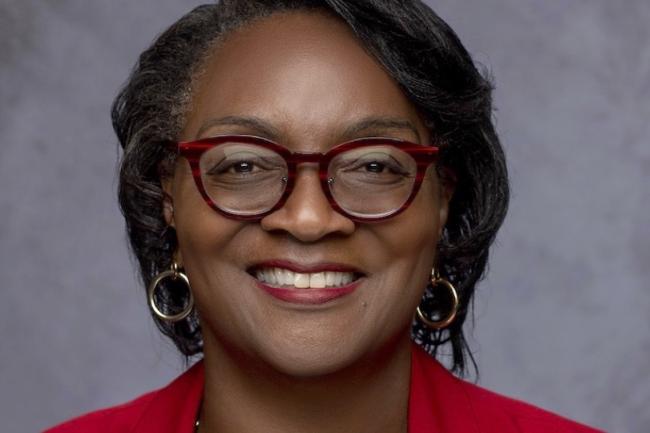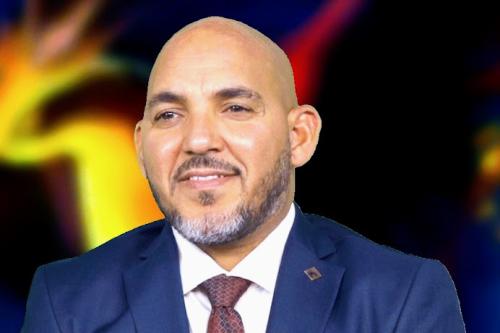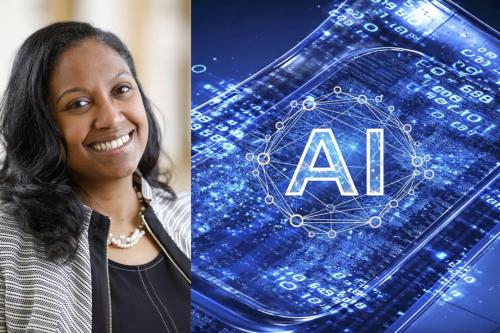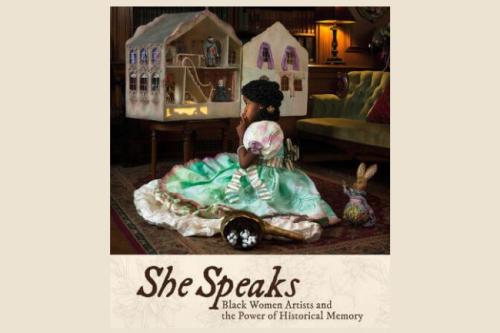WASHINGTON – Gracie Lawson-Borders, Ph.D., dean of the Howard University Cathy Hughes School of Communications, and computer science professor Todd Shurn, Ph.D., will discuss the societal and media impacts of artificial intelligence at a multidisciplinary panel discussion on Friday, April 5.
“Is it Real? Or Is It AI?” is a joint program between Howard’s School of Communications and the DC Bureau of Northwestern University’s Medill School (DC Bureau). The event will take place at Medill School, located in the Washington Post Building (1301 K Street NW, Suite 200 West), from 6 p.m. to 9 p.m.
Lawson-Borders has served as dean of Howard’s School of Communications since 2013. A former journalist, her research and teaching interests cover emerging technologies, new media, media management, and coverage of underrepresented communities. Lawson-Borders said the panel discussion will provide people with greater insight on the impact that AI can have on their lives.
“I want to join others who lean into generative AI for understanding and its application to education, media, and society,” Lawson-Borders said. “AI is here and impacting everyone across disciplines and industries. It is called ‘disruptive technology’ for a reason. We must learn to harness AI’s use and the ways we integrate it into our work and our lives.”
Shurn is an associate professor of electrical engineering and computer science with over 30 years of experience as a faculty researcher contributing to government, industry, and community initiatives. He has collaborated with HBO, Microsoft, Washington Post, US Army, and others. Shurn has active projects in robotics, video games, and autonomous navigation that highly leverage artificial intelligence.
Shurn said the discussion will highlight existing collaborations between the School of Communications and the computer science department at Howard University. They have partnered to develop tools, training data sets, and large language models (LLMs) to reduce generative AI bias, he said.
“Interdisciplinary synergy is necessary to detect, combat and expose generative AI inaccuracies, inauthenticity and misleading imagery,” Shurn said.
Lawson-Borders and Shurn will be joined by moderator Jeremy Gilbert, Medill's Knight Professor in Digital Media Strategy, and David Lee, a senior technical product manager at The Washington Post. Gilbert’s research focuses on the content and revenue strategies of existing and emerging media companies. Lee is responsible for product strategy on several of The Post’s storytelling platforms including election results, live news coverage, and article experience.
###
About Howard University
Founded in 1867, Howard University is a private, research university comprising 14 schools and colleges. Students pursue more than 140 programs of study leading to undergraduate, graduate and professional degrees. The University operates with a commitment to Excellence in Truth and Service and has produced three Schwarzman Scholars, four Marshall Scholars, four Rhodes Scholars, 12 Truman Scholars, 25 Pickering Fellows and more than 165 Fulbright recipients. Howard also produces more on-campus African American Ph.D. recipients than any other university in the United States. For more information on Howard University, visit www.howard.edu.
Media contact: Sholnn Freeman; sholnn.freeman@howard.edu





